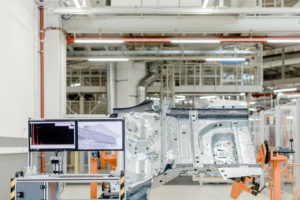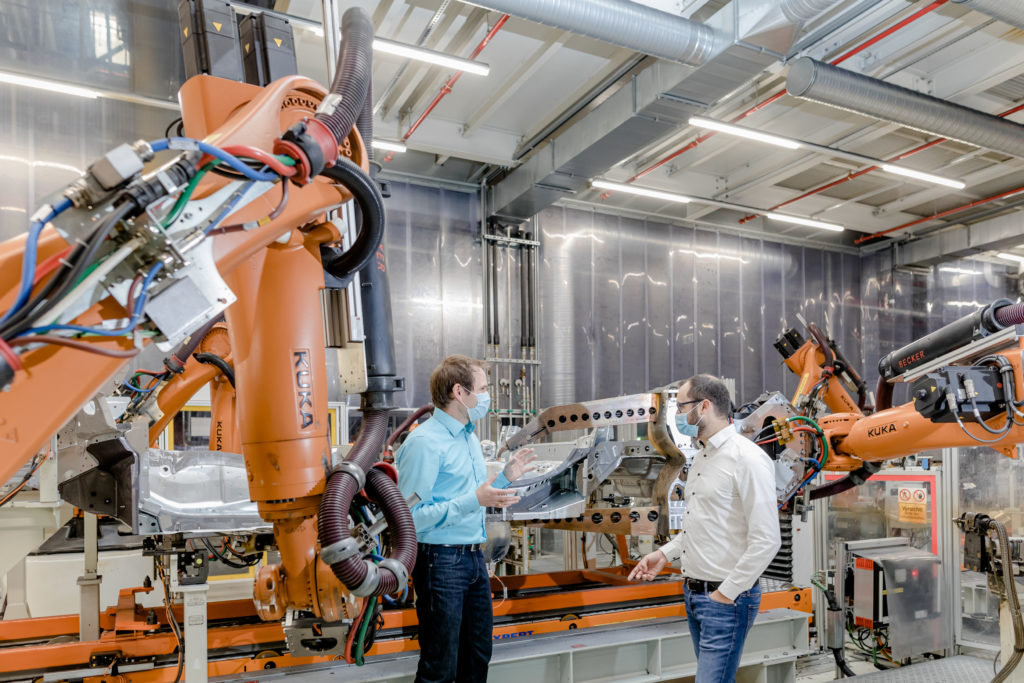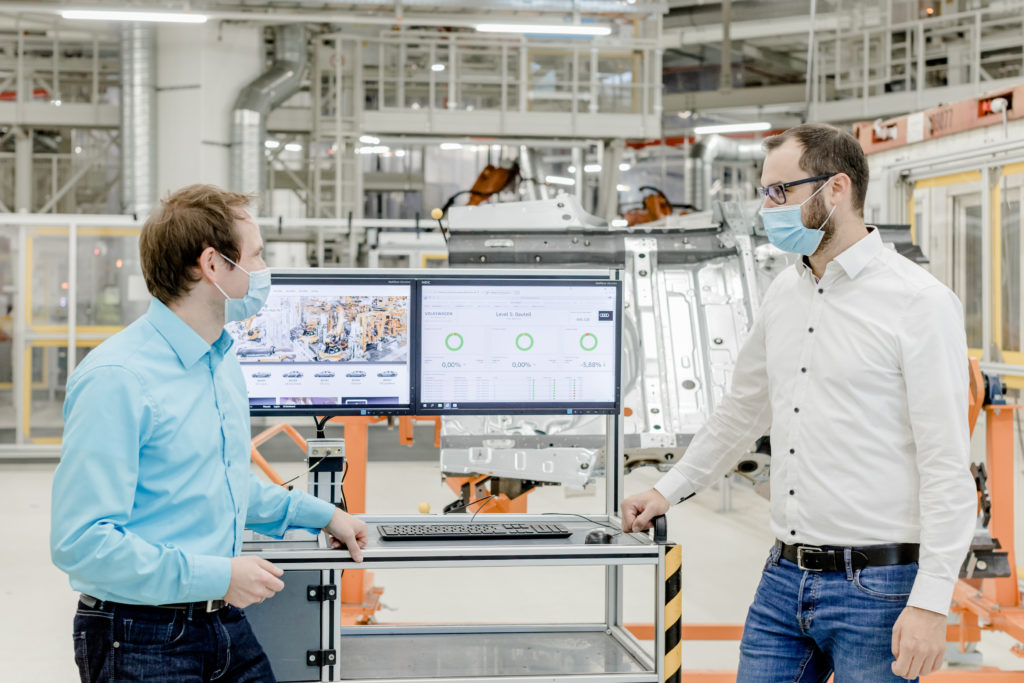
Audi begins using AI to check the quality of spot welds in high-volume production
By onAnnouncements | Technology
Audi has begun using artificial intelligence (AI) at its Neckarsulm, Germany, site to check on the quality of spot welds in high-volume production. Though the automaker said the technology is not expected to transfer to the repair process, it stands as a reminder of how important it is that each spot weld meets specifications.
According to Audi, about 5,300 spot welds are used to join the parts that comprise the body of an Audi A6. To date, the factory has used ultrasound to manually monitor the quality of the welding through random spot checks. The use of AI, Audi says, will allow the detection of flaws automatically and in real time.
“As a pilot plant for digital production and logistics at the Volkswagen Group, our goal is to test and develop digital solutions for vehicle manufacturing right through to their use in series production,” Michael Haeffner, head of delivery management digitalization for production and logistics at Audi AG, said in a statement. “With the use of AI, we are testing an important key technology here that will make Audi and the location fit for the future.”
According to a spokesperson, the new technology will rely on data provided directly from the welding controls. No cameras or additional sensors are used.
No changes in repair processes are anticipated, the spokesperson said.
Audi developed the technology in cooperation with Siemens and Amazon Web Services as part of the Volkswagen Group’s Industrial Cloud, and plans for it to be rolled out in other locations.
“The underlying algorithm, its graphical user interface (dashboard), and an application for more in-depth quality analyses are currently being piloted in Audi A6/A7 car body manufacturing at the Neckarsulm site,” Audi said in a press release. “The aim of the project is for the algorithm to evaluate close to 100 percent of the set welding points during body manufacturing in the future. The long-term vision is that in the future, the quality of welding processes can be controlled automatically and continuously optimized.”
Mathias Mayer, one of the leaders of the WPS Analytics pilot project (WPS is the abbreviation for the German term for resistance welding), has been working on the use of AI in Audi production for five years. He said the technology holds further opportunities: “The algorithm serves as a blueprint for further applications in connected manufacturing. In addition, it allows us to make advancements to existing digital solutions, such as predictive maintenance.”
Audi describes the Volkswagen Group’s Industrial Cloud as “like an app store,” from which connected sites can download applications for their machines, tools and systems to make manufacturing more efficient. The WPS Analytics algorithm and dashboard is already being shared with the VW factory in Emden, Germany.
Audi said it expects to begin using AI to detect quality defects, such as small cracks in the car body, in volume production at the Ingolstadt press plant in early 2022.
“This project also serves as a use case for the Automotive Initiative 2025 (AI25). Audi’s ultimate goal is to make production and logistics more flexible and efficient through digitalization. Innovative technologies are already helping employees and relieving them of strenuous physical tasks and monotonous manual tasks,” the automaker said.
More information
How Audi uses artificial intelligence in production
Images
Featured image: In the “WPS Analytics” pilot project, the team led by Andreas Rieker and Mathias Mayer is using artificial intelligence (AI) to detect quality anomalies automatically and in real time. (Provided by Audi AG)
In the “WPS Analytics” pilot project, the team led by Andreas Rieker (left) and Mathias Mayer (right) is using artificial intelligence (AI) to detect quality anomalies automatically and in real time. (Provided by Audi AG)
Using the dashboard, Andreas Rieker (left) and Mathias Mayer (right) can immediately identify abnormalities. (Provided by Audi AG)


